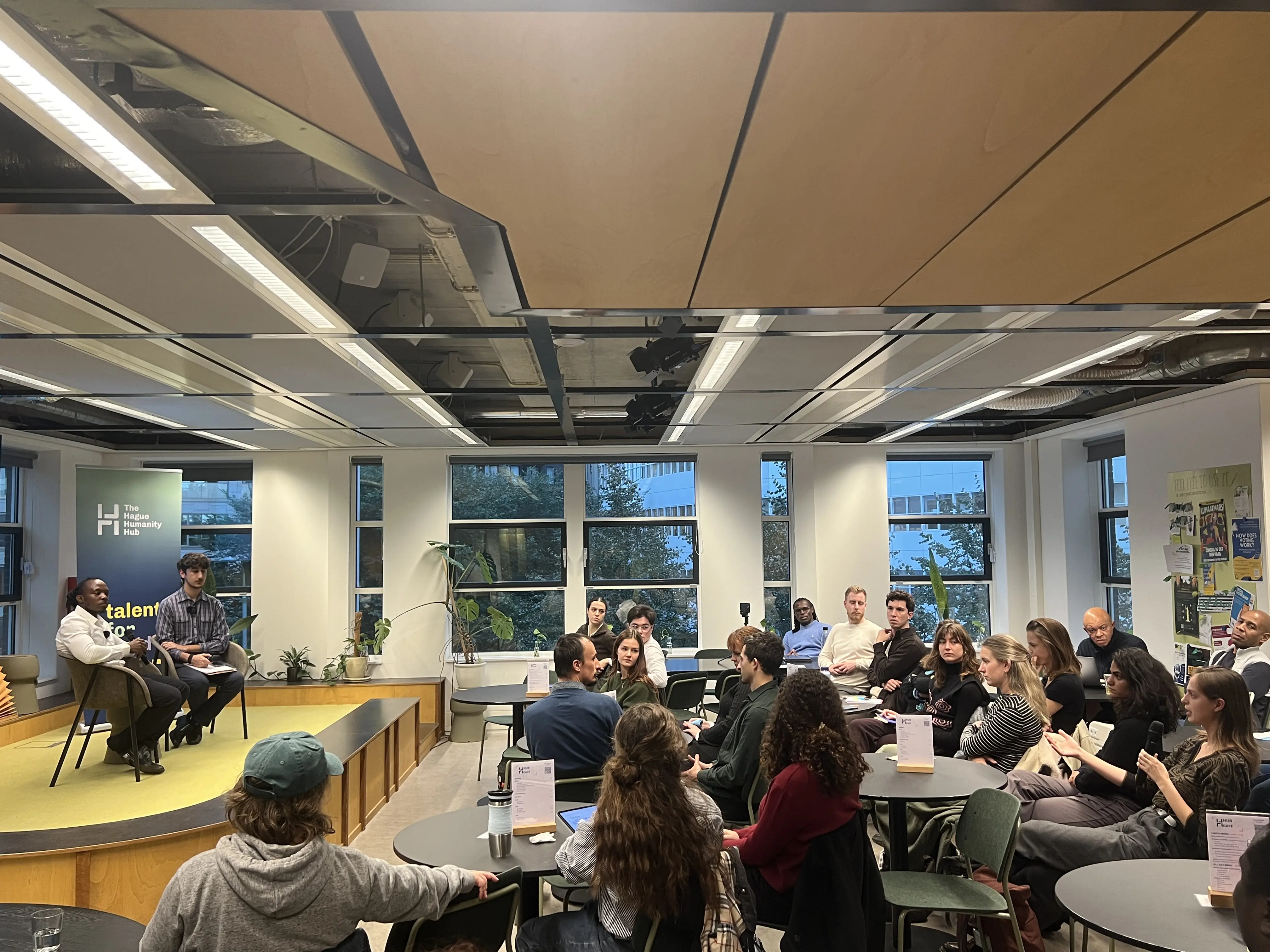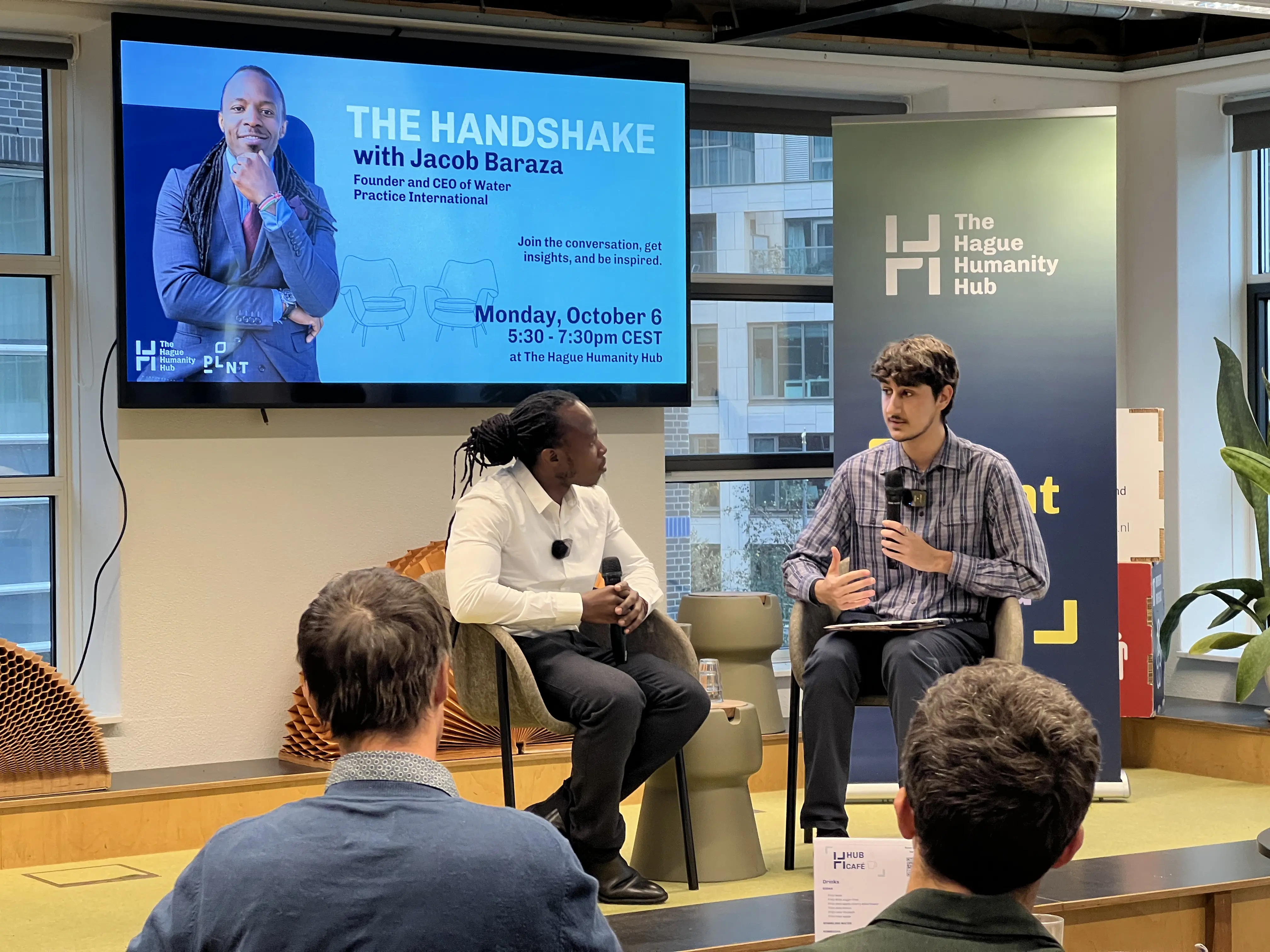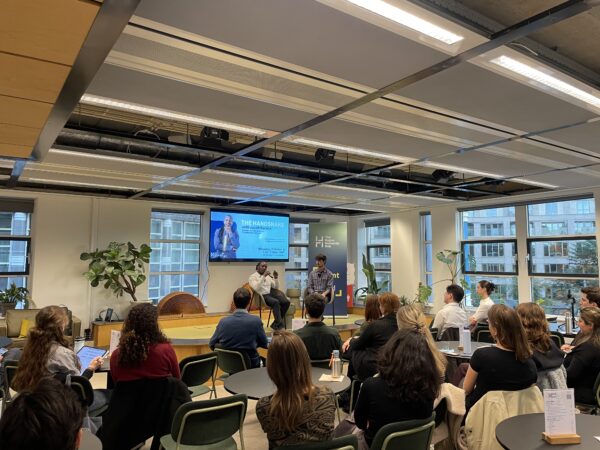Time for climate justice to develop a business mindset? Jacob Baraza shares how a value-perspective on ‘for good’ work can help foster community-led solutions.
On the 6th of October, The Hague Humanity Hub and PLNT kicked off “Ready to Explore: Green & Just Futures”, a three-month programme to help people who care about the climate crisis turn that concern into action. As part of this programme, The Humanity Hub hosted the first of three special editions of The Handshake: our ongoing series that invites experienced professionals to share their journeys with the next generation of changemakers. In this edition, Jacob Baraza – sustainable water and climate governance expert and founder of Water Practice International – shared the intrigues and challenges that come with creating community-driven water solutions.
“I like problems. I don’t like peace.”
Jacob explains that where others see problems, he sees opportunities. Where others see a constrained space for mission-driven work – ravaged by budget cuts and hostile governments – Jacob identifies a chance for the community to develop a business mindset. He thinks it’s time for changemakers to work closer with the private sector, fundraise, innovate, and offer a value perspective to for-good projects. However, this doesn’t mean that ‘for-good’ projects should operate solely for profit, as the importance of NGOs doing their jobs with integrity was pointed out by an attendee.

Despite the adverse context, Jacob proudly states “I am quite hopeful, and all I see are opportunities” – for the future of innovation and new technologies in climate governance, for new ways to face rising challenges in the for-good sector, and for the next generation of changemakers.
Putting the Human Front and Centre
Jacob also sees an opportunity to rethink how we approach climate action – arguing that community-driven projects with a human focus offer unique benefits. Water Practice International was born out of Jacob’s frustration with the lack of local ownership in water projects. He says change happens on the ground, and that’s where we should focus. “Otherwise, it’s like having a headache but treating your leg.”

He urges young changemakers to implement this in their work by bringing communities together and recognising the lived expertise of locals. Importantly, he thinks we must view local engagement from a value perspective: when you work with locals, you can teach them skills that will also help them make a living. If you make impact-driven work something people can live from, everyone stands to gain.
Jacob closes the session by sharing that working with local communities is more rewarding than influencing top-down policies, because “it has a personal touch.” Jacob spoke of how, in this work, you can see how you’ve improved a human life, built connections, and empowered communities to come together for good.
Key Takeaways
- The best way to promote the climate justice agenda as a young professional is to be outspoken and consciously include it in all your work.
- “Don’t be afraid to disrupt. Fight for your values, even if others see you as inexperienced.”
- Developing an innovation and business mindset will help NGOs evolve.
- “Focus on the solutions we can offer, not the problems we have to face.”
- Real change happens on the ground when we value the expertise of local communities.
- “These communities understand well what is happening in their environment. If you don’t engage with them, you’re missing the mark.”
- There is not a single path to success, and even seemingly irrelevant skills can make your work stand out.
- “Each and every thing that you do contributes to who you become.”
Find out more about the Ready to Explore Programme View our upcoming editions of The Handshake
The Handshake provides a valuable opportunity to hear directly from experienced professionals working in peace and justice. In an open and informal setting, participants can ask questions, gain insight into career trajectories, and better understand the skills and qualities needed to succeed in the field.
This event is part of the Hague Humanity Hub Talent for Good programme, supporting students and young professionals in exploring purpose-driven career opportunities in The Hague and beyond. Whether you are at the start of your career or considering a transition, the Talent Hub can help you navigate the peace and justice sector.
For additional career inspiration and guidance, explore our Career Insights, an online resource featuring diverse career paths and practical advice from professionals in our community.
Discover opportunities through Talent for Good here.
